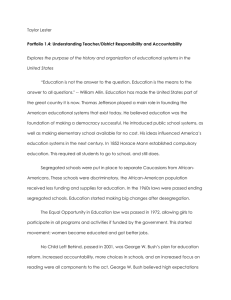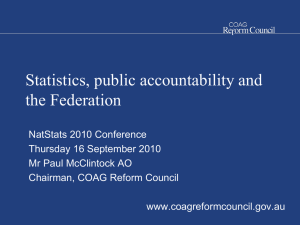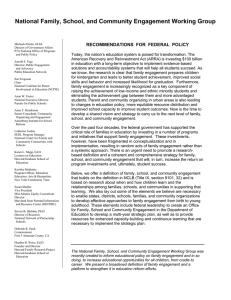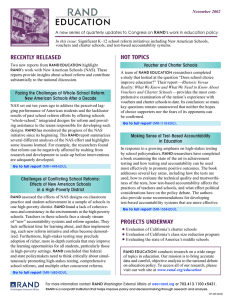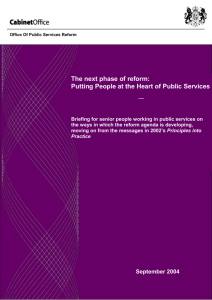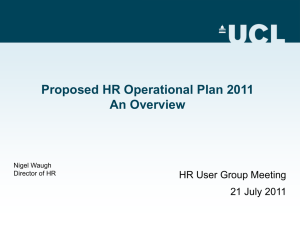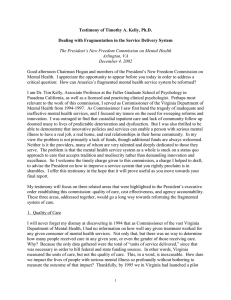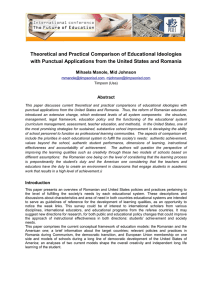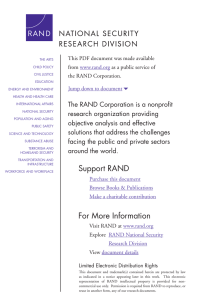Reform: Focus on the Curriculum
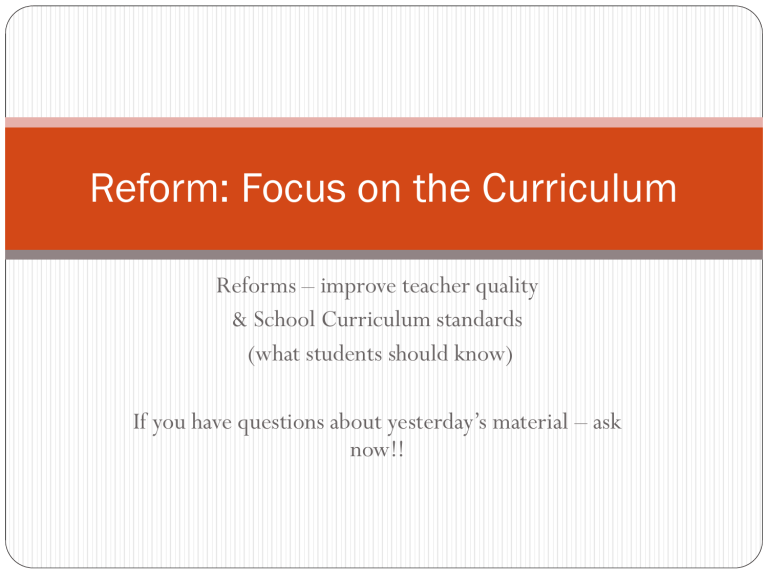
Reform: Focus on the Curriculum
Reforms – improve teacher quality
& School Curriculum standards
(what students should know)
If you have questions about yesterday’s material – ask now!!
Standards, Testing & Accountability
NCLB Act of 2001- major changes in the curriculum
Past – districts/states had curriculums guides – weren’t widely used
Now – every state – constructed standards that you & your students are accountable for
Think EOC
Teacher Evaluations
Accountability – students will be required to demonstrate that have met the standard
Standards, Testing & Accountability
High-stakes tests – standardized assessments that states and districts use
Some districts – you have to pass a test to pass a class, graduate
–the stake are high
As a teacher – you have to prepare your students for the test
Standards and Assessment
States – tests aligned with standards
KOSSA
Differ the way they administer test
To help teachers – sample questions are available
Help teacher interpret the meaning of the standard
Help guide teachers as they prepare students
Controversies in the Standards
Movement
Standards, accountability & high stakes testing – facts of your teaching life
Schools are graded depending on student performance
Controversy
Damage both schools and students
High stake test – certain subjects – de-emphasize other subjects
Teachers request out of grades that are tested
Not adequate for making crucial decisions
Decrease motivation & student learning
Controversies in the Standards
Movement
Advocates
The fairest & most effective means of promoting success for all students
Greatly improve achievement for all students
Parents undecided
Reform: Focus on Schools
School Choice
A variety of programs designed to give families the opportunity to choose the school their children will attend
Not the one within geographic location
Vouchers, home schooling & tax credit & deductions – options
Advocates – freedom of choice
Critics – parents already have choices
Charter Schools
Alternative schools that are publicly funded but independently operated
Teachers, community members, a private corporation (or combination of the three) develops a plan “charter” for a school
Local school board/state office must approve
Focus – differs, but most attract parents seeking smaller schools & class sizes, better instruction
About 1/3 – designed by urban community leaders to meet the needs of innercity youth
Academic benefit – unclear
Reform: Focus on Schools
Vouchers – checks or written documents that parents can use to purchase educational services
Parents know what is best for their children need & should be free to purchase the best education
Public or private, or just public
Highly controversial – religious school
Academic benefits – unclear
Public – does not support (research 1/3 American support)
Reform: Focus on Schools
State tuition tax credit plan – variation of a school voucher program – parents are given a tax credit for money spent on private tuition.
Better public support
Research – primarily benefit wealthy families who are already sending their children to private schools
Reform: Focus on Schools
Homeschooling – parents educate their children at home
Increased in popularity 90% increase from 1999 to 2009
Most (8/10) home school their children due to religious reasons or the moral climate of the school
All are seeking an alternative to public schooling
State laws – varies
41 states – no minimum education qualification
8 states – at least high school diploma
Half states – students have to participate in standardized testing
Typically these student perform well (30 percentile point better)
Unclear if it is instruction or self-selection
Critics
Quality of education??
Neglect/abuse of children

